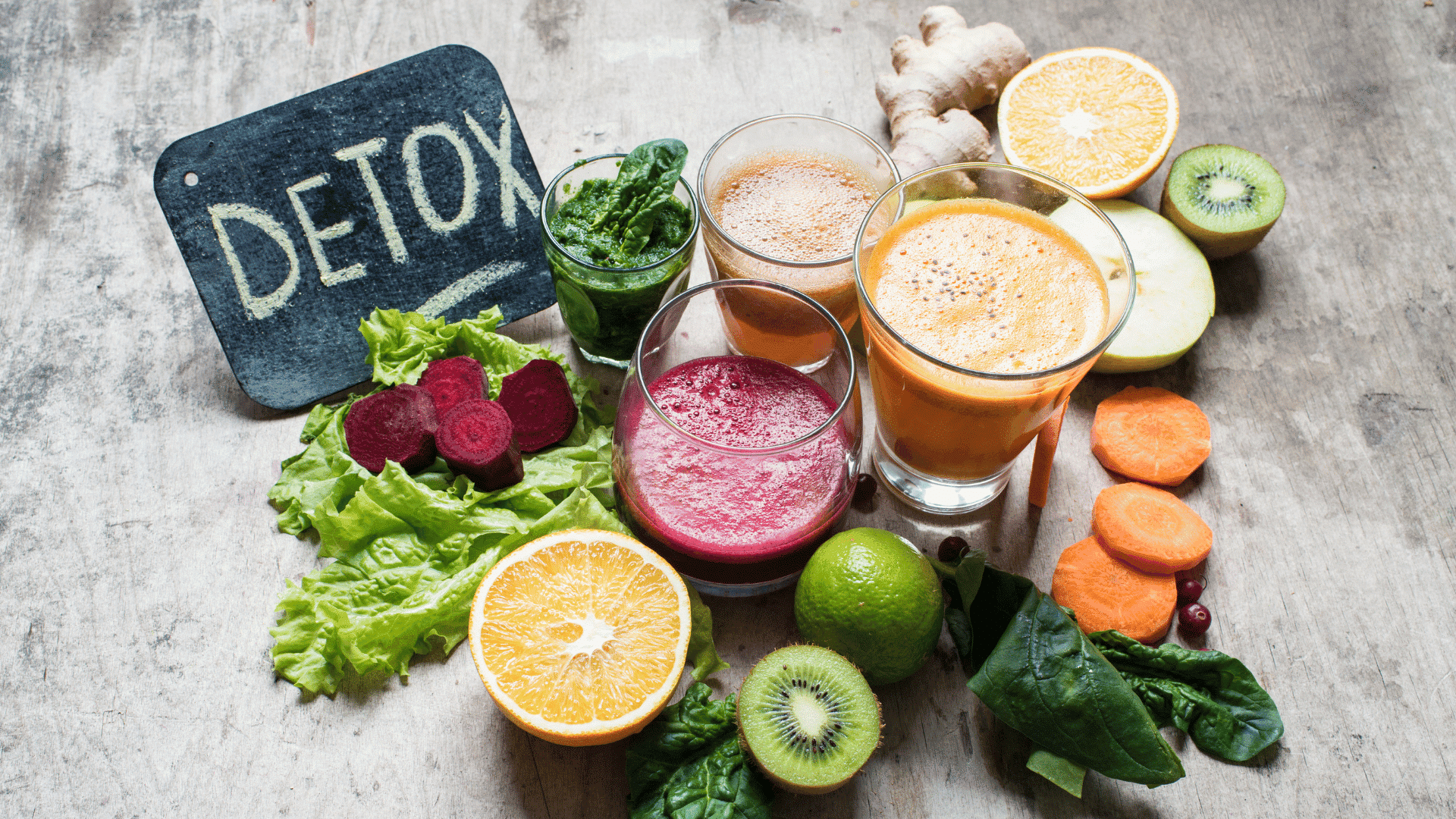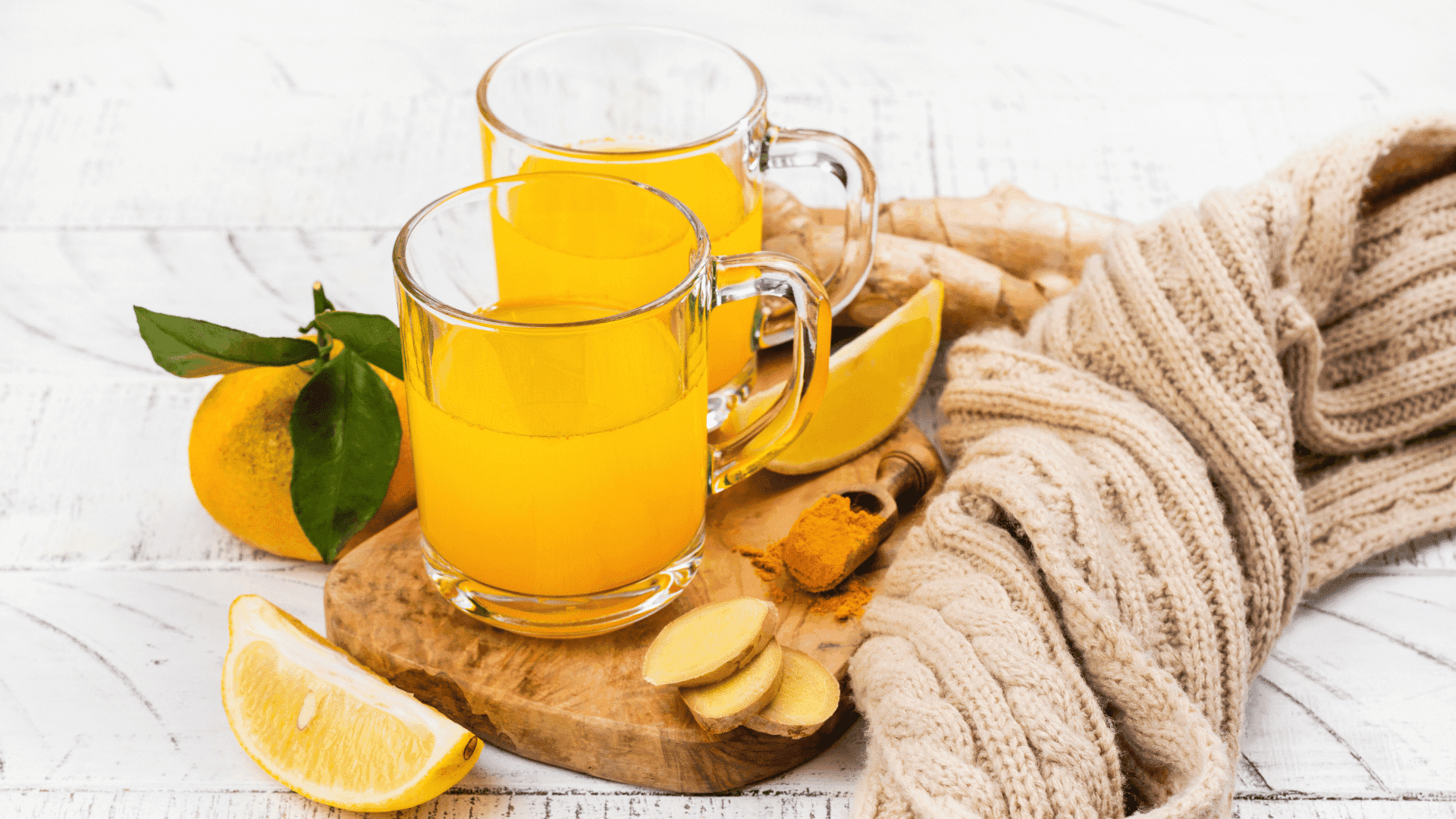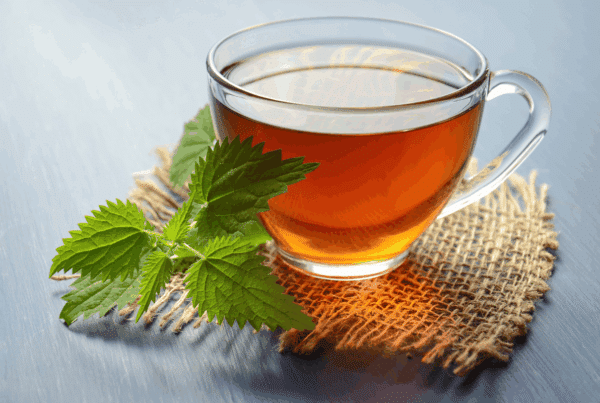In a sea of restrictive diets that promise a "quick reset", more and more people are looking for a healthier, more sustainable way to refresh the body and regain energy - a detox without starvation. The good news is that detoxing doesn't have to mean starvation or extreme regimens.
In fact, the body already has its own mechanisms for daily cleaning - the liver, kidneys, lymphatic system and digestive tract, which continuously work to eliminate toxins. However, modern lifestyles, diets rich in processed ingredients, stress and irregular sleep can slow down these natural processes.
That's why it's important not to try to "force" the body to detox by radical starvation, but to strengthen it - by choosing foods that support digestion, the liver and the elimination of excess fluids and waste materials.
The goal of detox should not be rapid weight loss at any cost, but gradual refreshing of the body, a better feeling in the body, more stable energy and a reset of habits. With smartly chosen meals, it is possible to move the body, facilitate digestion and restore the feeling of lightness - without giving up, exhaustion and nervousness.
In previous texts Detoxification of the organism through macrobiotic nutrition and Fasting as a way to cleanse the body: Detoxification through fasting we have covered some alternative ways to detoxify the body, and in the rest of this text, we will discover which foods naturally "cleanse" the body and how to include them in your daily diet - simply and without starvation.
Why avoid fasting detox?
While the idea of "cleansing" by stopping eating may seem logical, in practice it often does more harm than good. Starvation or extremely reduced calorie intake can temporarily reduce body weight, but most often water is lost, not fat tissue - while the metabolism slows down at the same time.
When the body feels that it does not have enough energy, it goes into saving mode: it consumes fewer calories, saves reserves and slows down all processes, including detoxification. Therefore, exactly what we want to speed up - the cleansing of the organism - is actually blocked.
In addition, fasting detox can cause:
- Sudden exhaustion and drop in energy
- Irritability and difficulty concentrating
- Low blood sugar and dizziness
- Increased appetite and emotional overeating after "detox"
- Weakening of the immune system if it lasts longer
Apart from the fact that it is rarely maintained, this approach often leads to the so-called yo-yo effect - after starvation, there is a sudden intake of food, which additionally burdens the digestive organs and nullifies all effort.
That is why it is much more effective (and healthier) to support natural detoxification processes with the help of quality, easily digestible food, sufficient hydration and mild physical activity - without feeling hungry and exhausted.

Detox through smart choices, not through restriction
True detoxification does not mean starving yourself, but consciously choosing foods and habits that facilitate the work of the liver, improve digestion and encourage the natural elimination of toxins. When we provide the body with the necessary nutrients, fiber, liquid and support in the form of rest and movement - the body resets itself.
So, it's not about a "cleansing" that lasts for three days, but about a smart approach that easily fits into everyday life, without feeling deprived.
Here are some simple but powerful habits that make a difference:
Add, don't subtract.
Instead of thinking about what you can't eat, focus on what you can add: more vegetables, more water, more fiber, more light meals. Detox is a process of support, not punishment.
Choose easily digestible meals.
Food that is easily digested reduces the burden on the digestive system and leaves more energy for regeneration. These are primarily: boiled and steamed vegetables, soups, porridges, salads with lemon and olive oil.
Drink enough fluids.
Water, herbal teas and natural drinks (like lemon water or mild kombucha) help the kidneys and liver to eliminate waste more efficiently. Lack of fluids directly slows down natural detox.
Support the elimination and through the movement.
You don't have to exercise hard - a walk, light stretching or sitting in a warm bath is enough. By sweating, breathing and moving, the body gets rid of excess fluid and waste materials.
Avoid the pressure to "be perfect".
The greatest strength of detox lies in small, consistent steps. And one soup a day, one supplement of green vegetables or half an hour of silence without a phone - all of this is part of the detox.

Foods that support natural detox
A real detox does not require exotic ingredients or expensive drinks - but daily, easily available foods that support the natural processes of eliminating toxins in the liver, intestines, kidneys and lymphatic system. Some of them you may already use regularly - now you just need to put them in the foreground.
Here are the foods that have a natural detoxifying effect and how to include them in your daily diet:
Beetroot
Beetroot is one of the most powerful allies of the liver. It is rich in antioxidants, fibers and betalains that promote detoxification and cell regeneration.
How to use:
- Grated raw in a salad with lemon and olive oil
- Cooked as an addition to soups
- As a base for a lemon and ginger smoothie
Greens (chard, rocket, spinach, kale)
Leafy green vegetables contain chlorophyll, which helps "clean" the blood, supports liver and kidney function.
How to use:
- Add to smoothies for a slightly refreshing taste
- Blanch and serve with olive oil and lemon
- In vegetable soups and spring stews
Lemon
Lemon stimulates bile, aids digestion and supports hydration. Its acidic nature in the body has an alkaline effect and can reduce inflammatory processes.
How to use:
- A glass of lukewarm water with lemon in the morning (before breakfast)
- Add lemon to salad dressing
- In a smoothie combined with ginger and apple
Ginger
It stimulates digestion, reduces bloating and has a strong anti-inflammatory effect. It is also useful when you want to get rid of the feeling of heaviness after a meal.
How to use:
- As an addition to hot water or tea
- Grated ginger in soup or stew
- In fresh juice with apple and lemon
Flax seeds
They are rich in fiber and omega-3 fatty acids. Fiber binds waste materials and helps their removal from the body through the intestines.
How to use:
- Add a teaspoon to yogurt, oatmeal, or smoothies
- Sprinkle over salad.
- In combination with chia seeds for a "detox pudding"
Green tea
A natural source of antioxidants (catechins), which support liver function and accelerate metabolism. It also helps you feel energized without the jitters that coffee causes. Matcha tea is a significantly more potent variant of green tea, so a cup of matcha tea is our warm recommendation.
How to use:
- 1-2 cups a day (best before noon)
- It can also be consumed as iced tea with a slice of lemon
- Unsweetened – or with just a little honey
Fermented foods (kimchi, sauerkraut, kombucha)
Maintaining a healthy gut flora is the foundation of any detox. Fermented products they stimulate digestion and help eliminate toxins through regular emptying.
How to use:
- Adding sauerkraut as a salad to the main meal
- Kombucha as a natural drink between meals
- Add kimchi to salads or wok vegetables

Daily detox routine without starvation and stress
Detox doesn't have to look like a 7-day challenge with a restrictive plan. In fact, the best results come from small changes that you can make right away, without feeling like you're on a diet.
Below is a suggestion for a simple, balanced day of detox - without starvation, with easily digestible meals and support for digestion and elimination of toxins.
Morning - a light start for digestion and liver
- A glass of lukewarm water with lemon (if desired and a pinch of turmeric) – rehydrates the body and slightly stimulates the liver
- Smoothie with greens, flax seeds and lemon - provides energy, fiber and antioxidants
Example: spinach + cucumber + half a banana + juice of half a lemon + a teaspoon of flax seeds + water
Lunch – easy to digest, but nutritious
- Vegetable broth (zucchini, celery, carrot)
- Salad of grated beets and carrots with lemon and olive oil
Optional: add a vegetable or light protein source (chickpeas, baked tofu, boiled egg)
The combination of warm and raw vegetables stimulates digestion, and fiber binds excess waste matter.
Afternoon – mild energy and bowel support
- Ginger tea or green tea
- Snack: fruit + a handful of nuts or an energy ball with coconut and turmeric
This is the time of day when concentration falls - natural tea and a healthy snack help to regain focus without additional stress on the body.
Dinner - light, but refreshing
- Warm vegetable soup (broccoli, leek, zucchini)
- Salad with arugula, sauerkraut and a teaspoon of olive oil
Optional: whole grain rice or quinoa as a mild source of carbohydrates
In the evening, the goal is to relieve the digestive system and prepare the body for rest.
Before going to bed - relaxation support
- Herbal tea (mint, chamomile, valerian)
- Quiet time without phones, TV or overeating
This routine can serve as a "reset day" after holidays, heavy meals, poor sleep or a busy period. Of course, it doesn't have to look identical every time - it serves as a framework to show that detox can be simple, delicious and gentle on the body.
Real detox starts in everyday choices
Detoxification is not a crash diet, but a process of supporting the body to do what it already knows how to do - only more efficiently. Instead of burdening yourself with restrictions and starvation, focus on eating foods that help your body feel lighter, function better and regenerate at a natural pace.
Small habits like a glass of lemon water in the morning, adding vegetables to every meal and listening more carefully to your body's signals can have a bigger effect than any extreme regimen. Detoxing without fasting is not only possible – it's far more sustainable and enjoyable.
Sometimes it is enough just to make space in everyday life for lightness. The body will recognize it - and thank you with energy, better digestion and a clearer mind.









